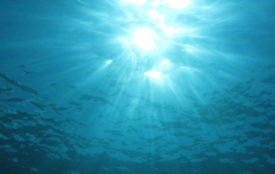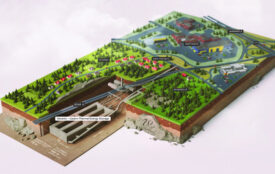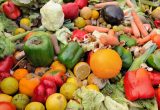Increasing nitrogen fertilization could pollute rivers and worsen water scarcity
In the 2050s, one-third of the world’s rivers could be affected by water scarcity or be polluted by nitrogen. This is the result of a study by an international team of scientists, including researchers from the Potsdam Institute for Climate Impact Research and led by scientists of Wageningen University. They assessed the scarcity of clean water under ongoing climate change and show how water pollution from intensified agriculture and untreated sewage could limit clean water supply.
While water scarcity is widely studied, the impact of future water pollution from human activities on the water supply is not yet fully understood. In their study, published in Nature Communications, the research team focused on nitrogen as a pollutant.
Using a newly introduced Clean-Water Scarcity indicator, the scientists assessed future water quantity and quality in more than 10,000 global river sub-basins. In 2010, about 10% of the world’s sub-basins were classified as water-scarce when considering only water quantity, while 25% of the world’s sub-basins are affected by quantity & quality-induced scarcity. The scenarios for 2050 show that pollution is disturbing the world’s clean water supply: In the worst-case scenario, about 30% of the world’s sub-basins could be affected by shortage of clean water in the year 2050, either in terms of having not enough water or the water being polluted.
Nutrients, such as nitrogen and phosphorus, are vital for plant and animal growth, but their overabundance in water can lead to serious ecological damages. Nitrogen pollution is caused by aquatic nitrogen losses from agriculture and inadequate treatment by sewage systems. When nitrogen concentrations in rivers are high, harmful algal blooms can disturb ecosystems and lead to clean-water scarcity in the future.
If there is less water, the same nutrients lead to a higher concentration within the water, such that quantitative water scarcity can also cause quality issues. This is for instance the case in Northern Africa, where water is so scarce that any nutrient inputs leads to violations of quality targets.
The researchers show that increasing water scarcity could be stopped and the availability of clean water could be maintained and even reversed to some extent if more efficient fertilization practices as well as a more plant-based diet were introduced. Finally, the researchers recommend to connect a larger share of the world population to sewage treatment.








